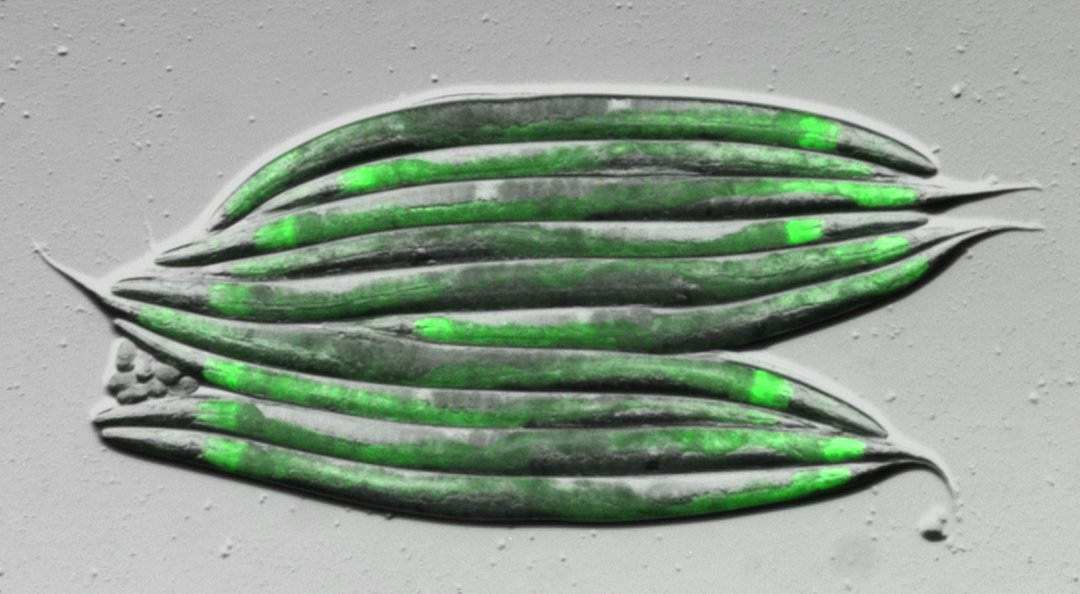

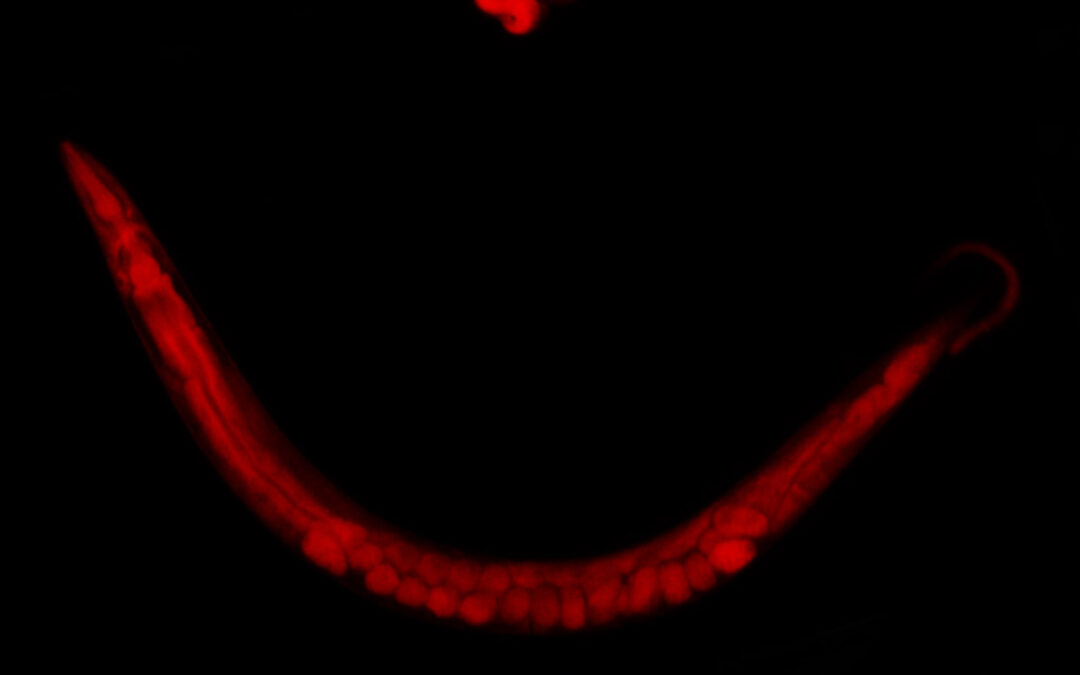
Tiny Worm, Giant Leap: Discovery of Highly Specific Fatty Acid Attachment to Proteins
In a world where the intricacies of molecular biology often seem as vast and mysterious as the cosmos, a new groundbreaking study delves into the microscopic universe of proteins, unveiling a fascinating aspect of their existence. This revelation could hold profound...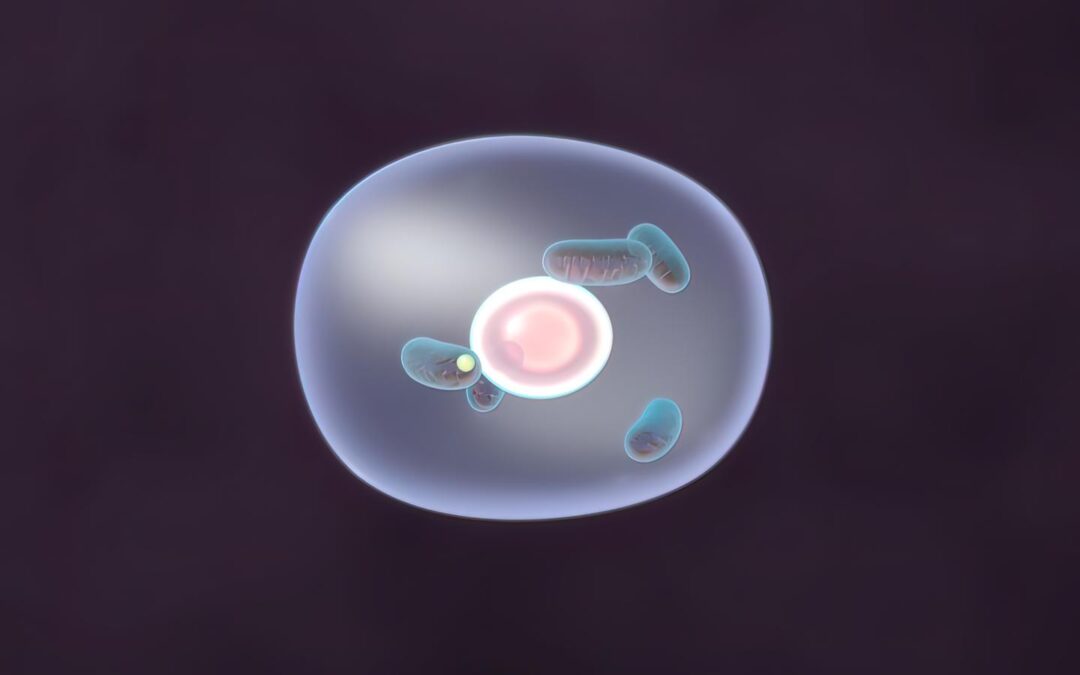
Deciphering Molecular Mysteries: New Insights into Metabolites That Control Aging and Disease
In a significant advancement in the field of biochemistry, scientists at BTI and Cornell University have uncovered new insights into a family of metabolites, acylspermidines, that could change how we understand aging and fight diseases.The study, recently published in...
From Waste to Wonder: Unlocking Nature’s Biochemical Recycling Secrets
A new perspective published in the journal Nature Chemical Biology uncovers a previously unknown biochemical recycling process in animals. The authors review a flurry of recent papers demonstrating that animals extensively recycle biochemical waste to produce novel...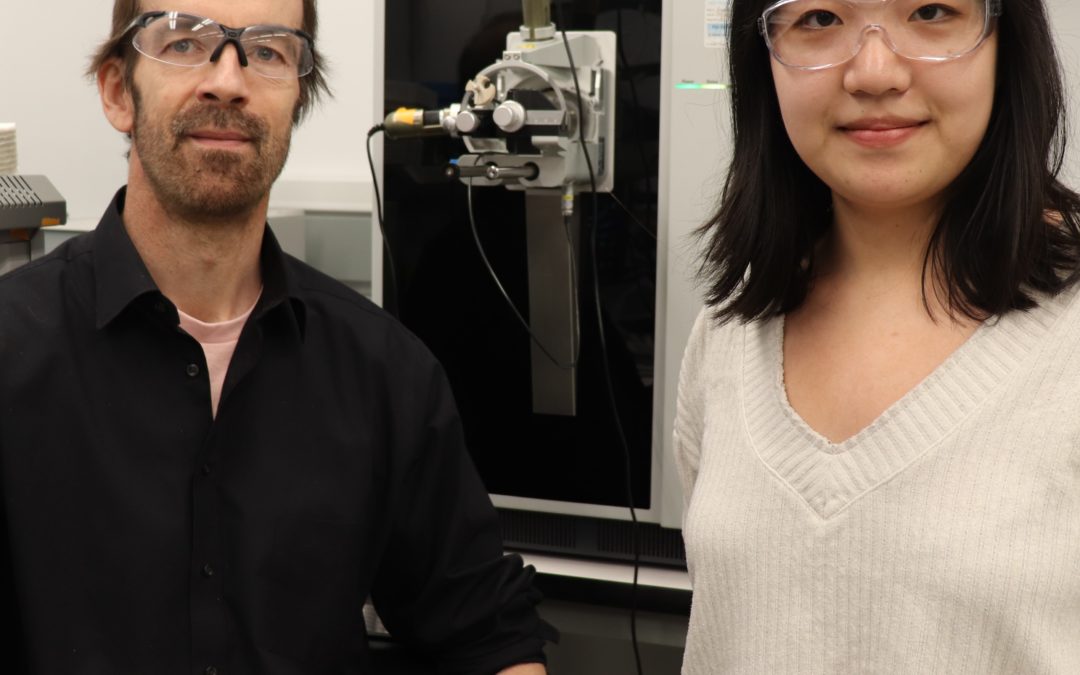
New insights into how serotonin regulates behavior
Rates of anxiety and depression have been increasing around the world for decades, a trend that has been sharply exacerbated by the COVID-19 pandemic. New research led by the Boyce Thompson Institute’s Frank Schroeder could ultimately lead to new therapeutics to help...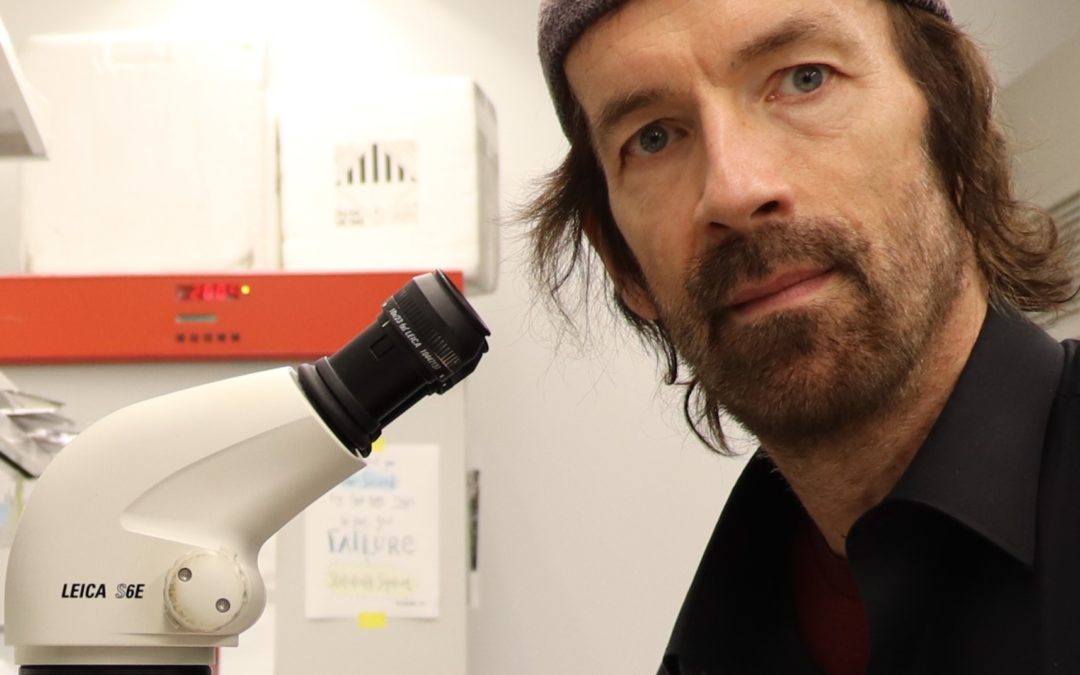
Worms as a model for personalized medicine
Tailoring a person’s diet or medicine based on their genomes has been a goal of the medical community for decades, but the strategy has not been widely successful because people metabolize chemicals differently. A drug may work differently for two patients because...
New software to help discover valuable compounds
As a postdoctoral research associate in the lab of BTI faculty member Frank Schroeder, Max Helf saw his labmates continually struggle when they were analyzing data. So, he decided to do something about it and developed a free, open-source app called Metaboseek, which...
Congratulations Spring 2020 Graduates!
We are pleased to announce that six BTI researchers received their degrees from Cornell University this spring. Congratulations to our newest alumni: Jason Hoki, Schroeder lab, PhD in Chemistry & Chemical Biology, Dissertation title: “Development of...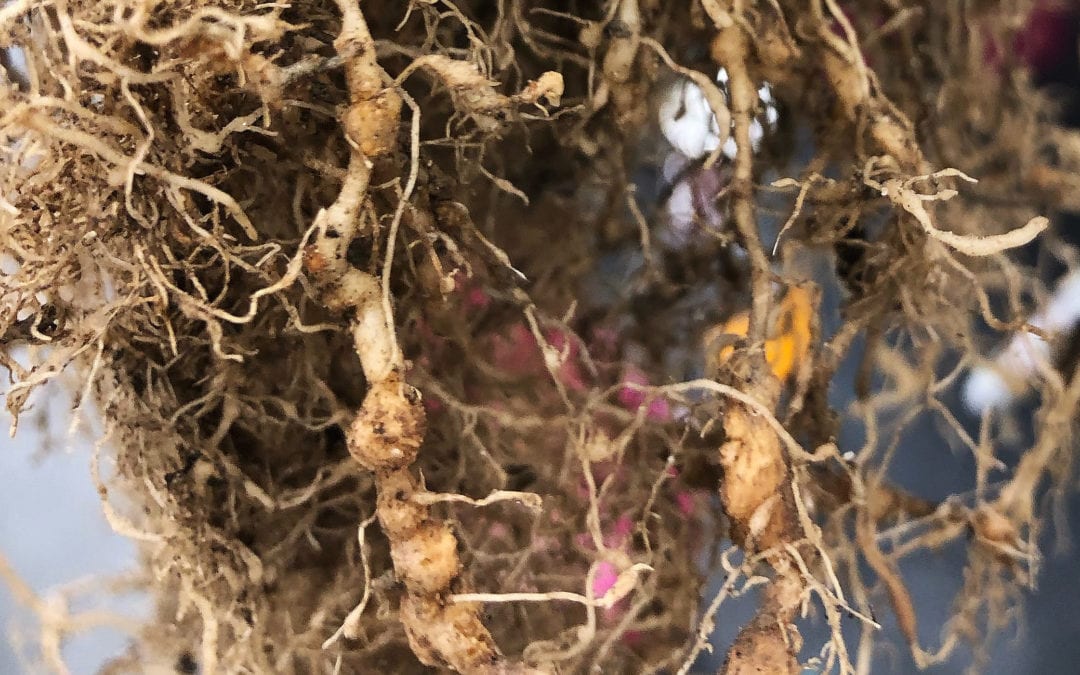
Plants Found to Speak Roundworm’s Language
Nematodes are tiny, ubiquitous roundworms that infect plant roots, causing more than $100 billion in crop damage worldwide each year. New research has found that plants manipulate the worms’ pheromones to repel infestations, providing insights into how farmers could...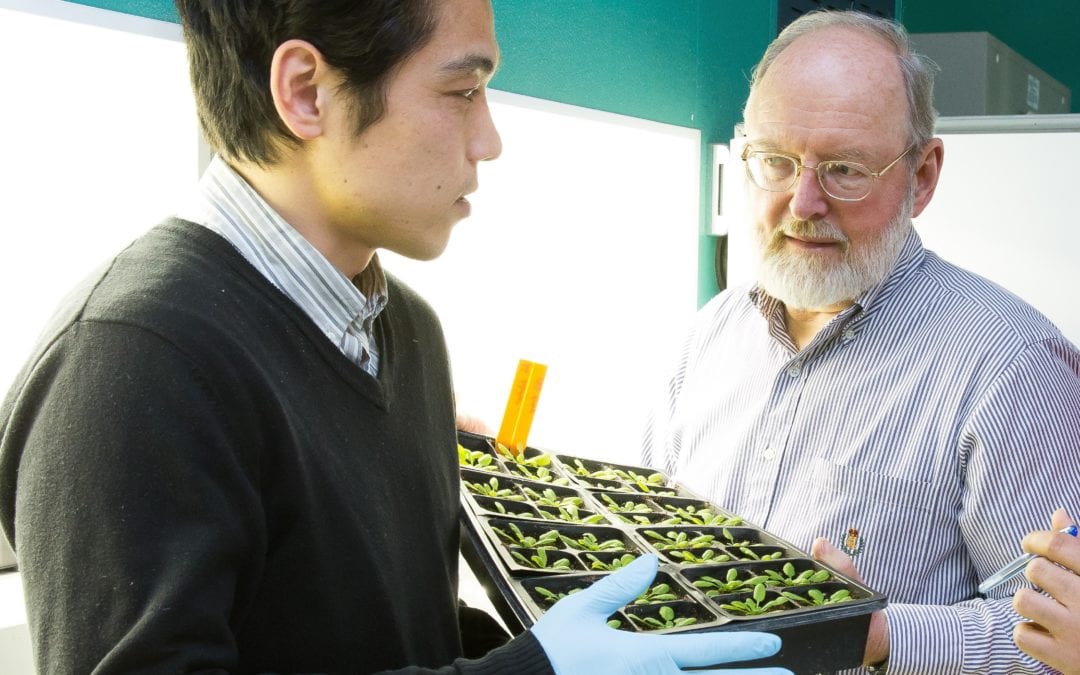
Aspirin-Like Compounds Could Treat Numerous Human Diseases
People have used aspirin to treat pain, fever and inflammation for more than a century, and the drug is also used to reduce the risk of strokes, heart attacks and some cancers. An estimated 100 billion aspirin tablets are taken worldwide each year, but how it works is...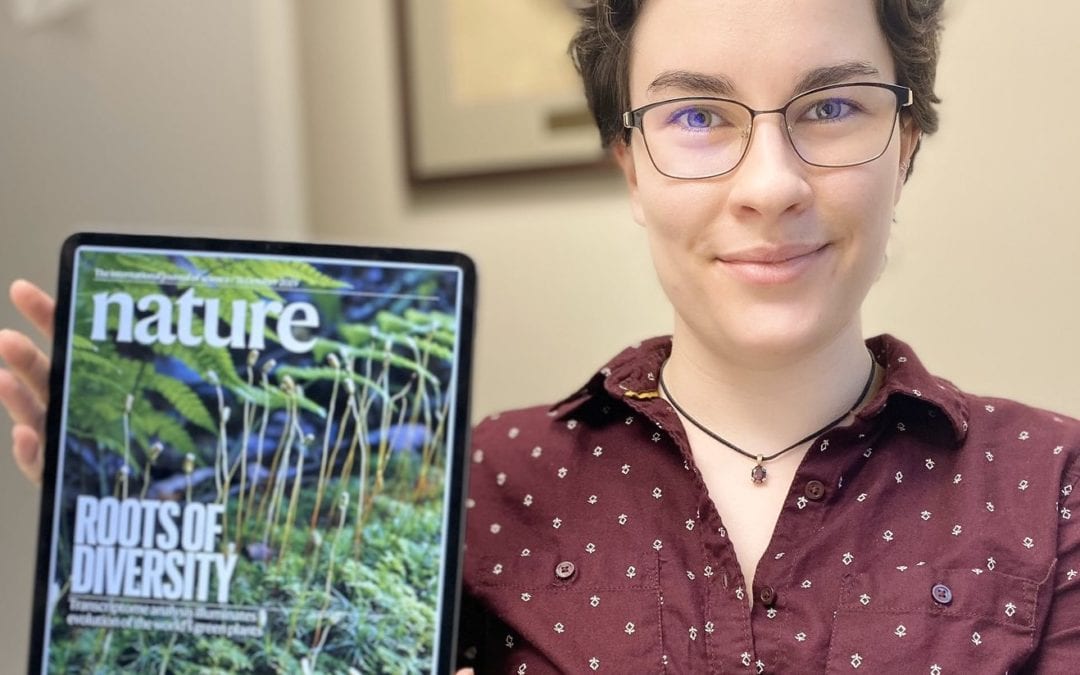
BTI Researchers Publish High-Impact Nature Papers
We would like to congratulate a pair of BTI faculty members who recently published high-impact research papers in the prestigious research journal Nature. Frank Schroeder and colleagues discovered the first clues on how gut health influences brain health. Published on...
BTI Researchers Discover Compound that Speeds Sexual Development and Decline
Every day, people are exposed to myriad chemicals, both natural and synthetic. Some of these compounds may affect human physical development, but testing them directly on people would be grossly unethical. To get around this dilemma, researchers from Boyce Thompson...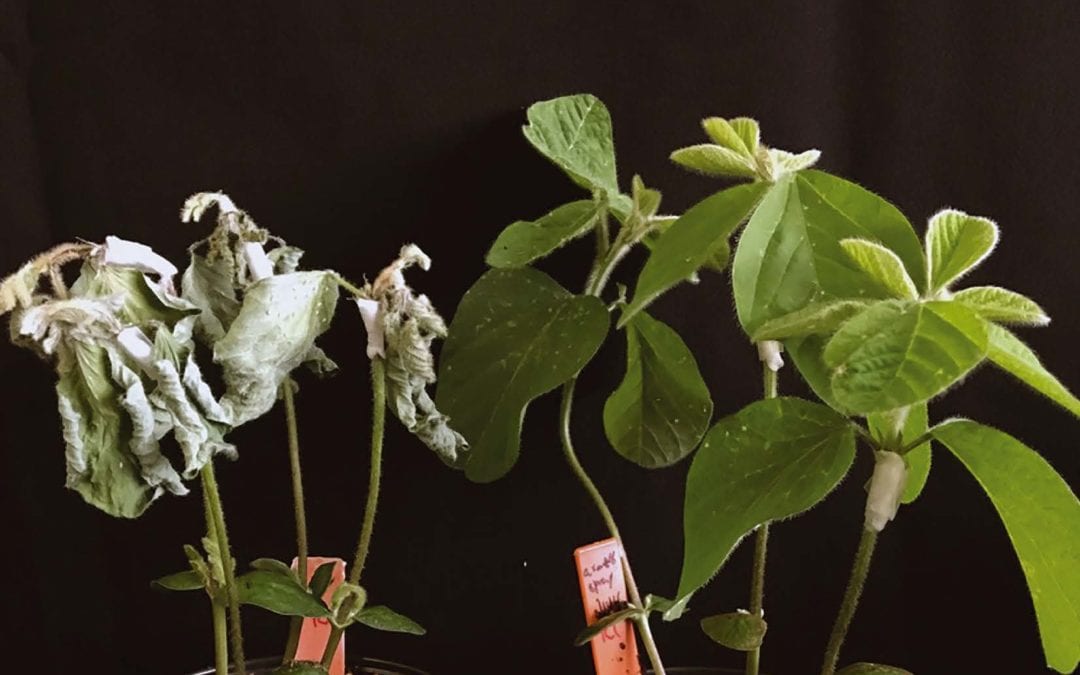
Worm Pheromones Protect Major Crops
Protecting crops from pests and pathogens without using toxic pesticides has been a longtime goal of farmers. Researchers at Boyce Thompson Institute have found that compounds from an unlikely source – microscopic soil roundworms – could achieve this aim. As described...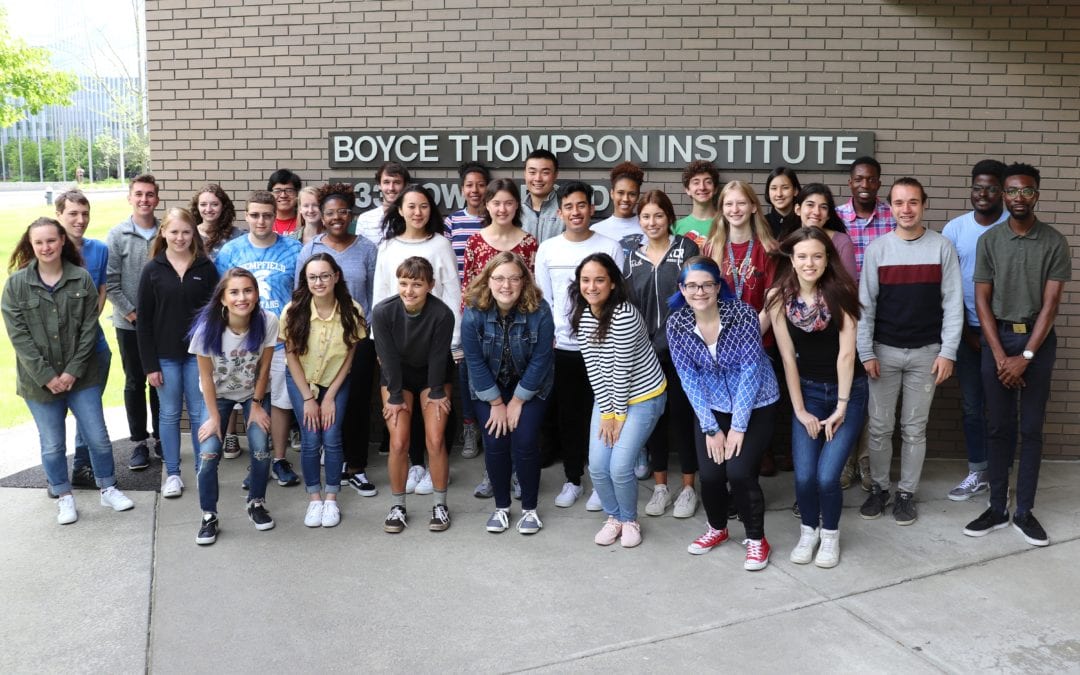
BTI Welcomes Summer Student Interns
On June 3, Boyce Thompson Institute welcomed 35 of the country’s brightest undergraduate students from universities around the country to experience the life of a researcher for 10 weeks. Eight more interns from area high schools will join the Institute for seven...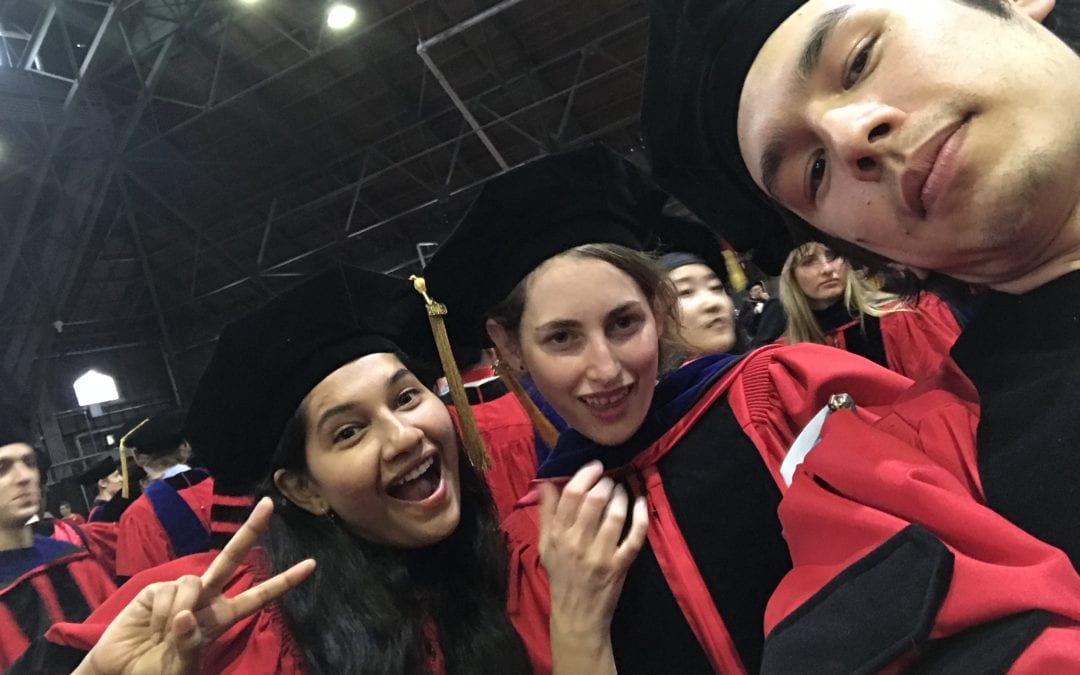
Congratulations to BTI’s PhD Graduates!
We are pleased to announce that seven Boyce Thompson Institute researchers received their PhD degrees during the Cornell University commencement ceremony on May 26. Congratulations to our newest alumni: Mariko Alexander, Heck lab, “Searching for the missing...
Inaugural BTI Alumni Recognition Awards
It is with great enthusiasm and pride that Boyce Thompson Institute (BTI) will recognize the first recipients of BTI’s Alumni Recognition Awards during the 2019 PGS Career Symposium on April 26, 2019. Several highly qualified individuals were nominated for the...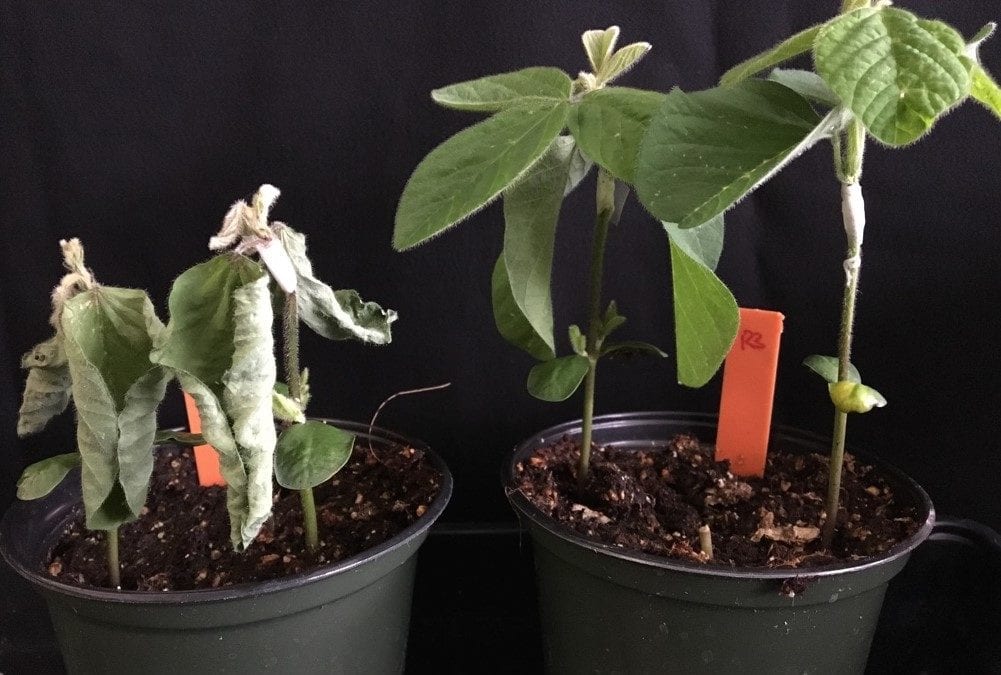
Ascribe Bioscience Receives SBIR Award from NSF
On January 29, 2019, Ascribe Bioscience became the first company based on technology developed at the Boyce Thompson Institute (BTI) to receive a Small Business Innovation Research (SBIR) grant. The agbiotech startup will use the $225,000 Phase I award from the...
BTI promotes faculty members Schroeder and Van Eck
Boyce Thompson Institute president, David Stern, has officially announced promotions for faculty members Frank Schroeder and Joyce Van Eck. Both researchers were thoroughly reviewed and evaluated on both their achievements to date and the potential they possess.
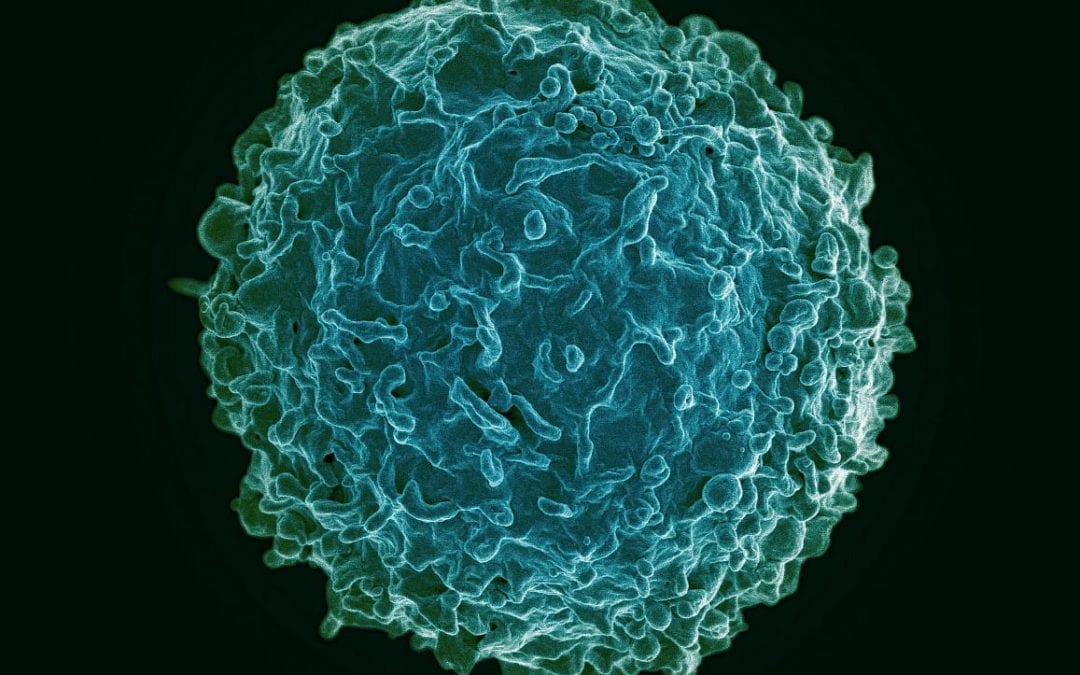
$9.4M NIH grant funds chronic fatigue syndrome center
Cornell will receive close to $9.4 million over five years to establish the Cornell Myalgic Encephalomyelitis/Chronic Fatigue Syndrome Collaborative Research Center, which will span Cornell’s Ithaca campus, Weill Cornell Medicine, Ithaca College, the Boyce Thompson Institute [Schroeder Lab], the Workwell Foundation, EVMED Research, the SOLVE ME/CFS Initiative and private ME/CFS medical practices.

Frank Schroeder Selected for HHMI Faculty Scholars Program
The five-year grant is given to innovative, early career scientists to support high-risk research with the potential to make significant contributions to the field.

Researchers Receive $1.7M NIH Grant for Nematode Behavior Work
When C. elegans larvae face starvation, they clump together in a mass of worms, which increases their lifespan. BTI researchers will explore this fascinating social behavior.

Chemicals from Parasitic Worms Boost Plant Immunity
When plants detect pheromones given off by nematode worms, they activate their immune system for protection. The chemical warning not only triggers defenses against nematodes, but also against bacterial, fungal and viral infection.

BTI Hosts Flash Science! Speaking Competition
BTI Professor Emeritus Robert Kohut initiates competition at BTI to give early-career scientists an opportunity to communicate with the general public and practice their “elevator speech.”

New equipment opens up ‘mass’ive possibilities
The Boyce Thompson Institute starts off 2015 with a generous gift from the Triad Foundation and researchers are about to open their most exciting present: a high-resolution mass spectrometer. The instrument, which can determine the chemical formula – and possibly even...
Patrick Boyle Off to Private Sector
Dr. Patrick Boyle will be an “Emerging Leader in Science” after four years as a Postdoctoral Scientist in Professor Gregory Martin’s Lab at BTI.

BTI/MIT Awarded Transformative NIH Grant to Tackle Antibiotic “Discovery Void”
$3 Million cross-cutting interdisciplinary High-Risk, High-Reward research project taps into unexplored source of antimicrobial compounds.

Postgraduates Hosted Annual BTI Symposium, September 25, 2014
Speakers will include Dr. Frank Schroeder, postdocs Daniela Floss and Patricia Manosalva, Dr. Robert Granados and Dr. Maureen Hanson (from Cornell), and discussion of postgraduate training and education with Dr. David Stern and Dr. Eric Richards.
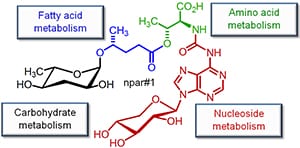
Schroeder Lab: Answering Life’s Biggest Questions with Small Molecules
Schroeder’s lab works to discover new small molecules and identify their structure and function in the context of aging. “We know everything we see will be unknown, pure discovery…It’s pretty intense. We get to the bottom of things.”

Joshua Judkins, BTI and Beyond
Joshua Judkins arrived at BTI as an intern in 2008 and left as a PhD in 2014…for a post doc position with Pfizer in neuroscience.
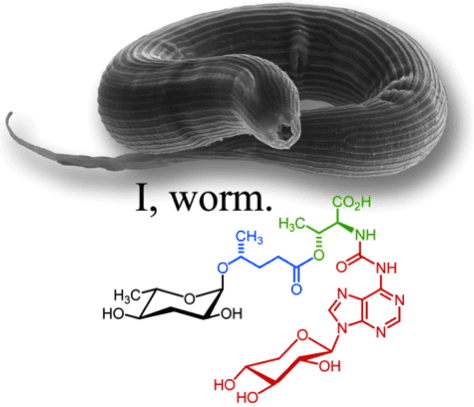
Worms Hijack RNA Building Blocks, Create Unique Sugar in the Process
Conventional wisdom holds that genes determine the morphology of animals, but something else iwormmay be at play. Frank Schroeder from the Boyce Thompson Institute at Cornell University and Ralf Sommer from the Max-Planck Institute in Germany now rep.

Compounds in Worms May Lead to Parasite Treatment
All of these nematodes speak the same chemical language,” through the use of compounds called ascarosides, said study co-author Frank Schroeder.

Worms Communicate Using a Complex Chemical Language
Scientists have discovered that a species of small, transparent roundworms called Caenorhabditis elegans possess a highly-evolved language in which they combine chemical fragments to create precise molecular messages.

Frank Schroeder Published in Nature: Sex and Life Span Linked in Worms: A Family of Sugar
A group of scientists who set out to study sex pheromones in a tiny worm found that the same family of pheromones also controls a stage in the worms’ life cycle, the long-lived dauer larva.
